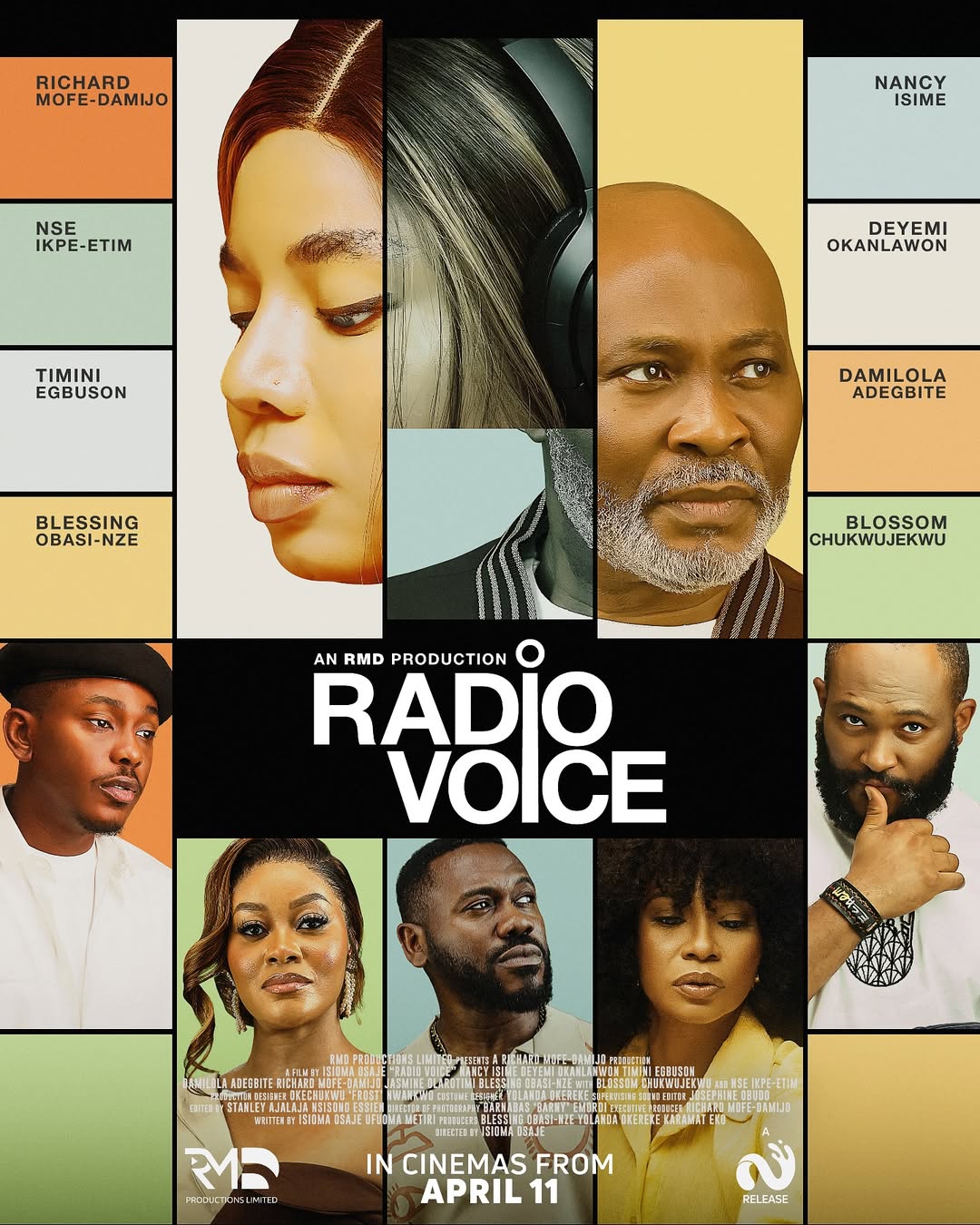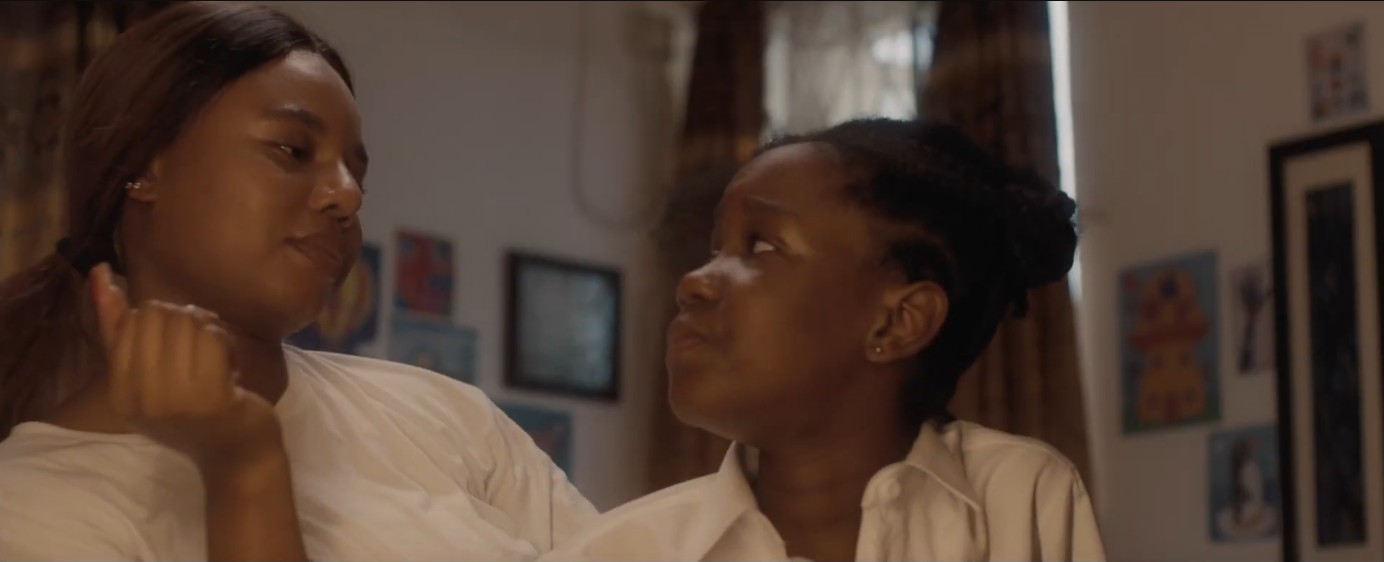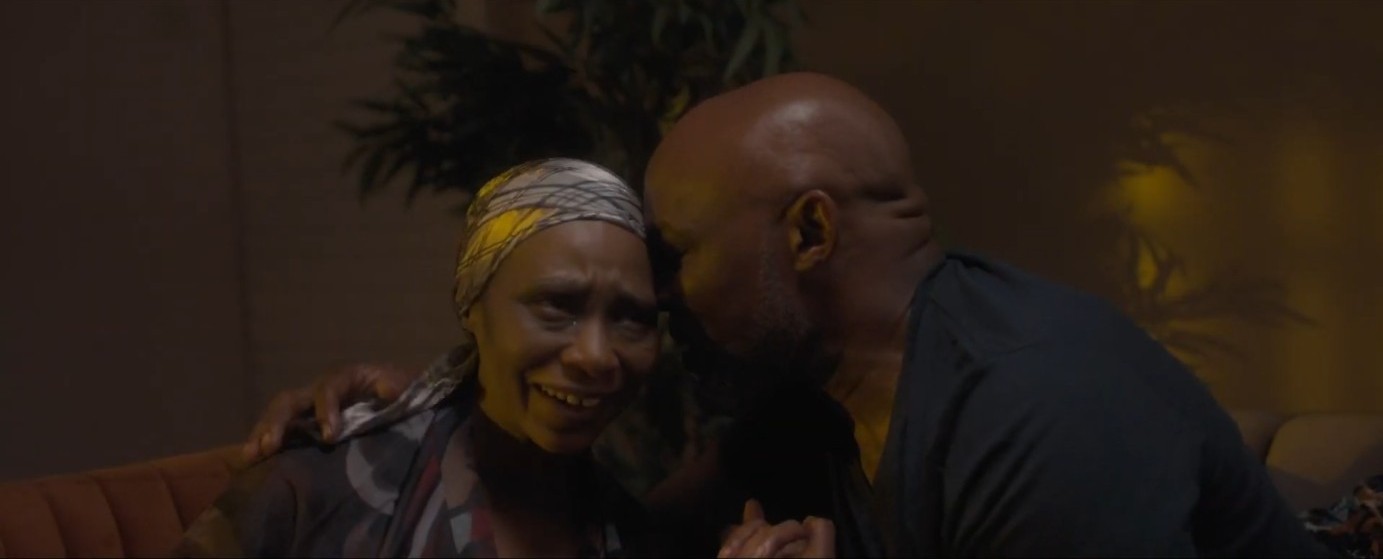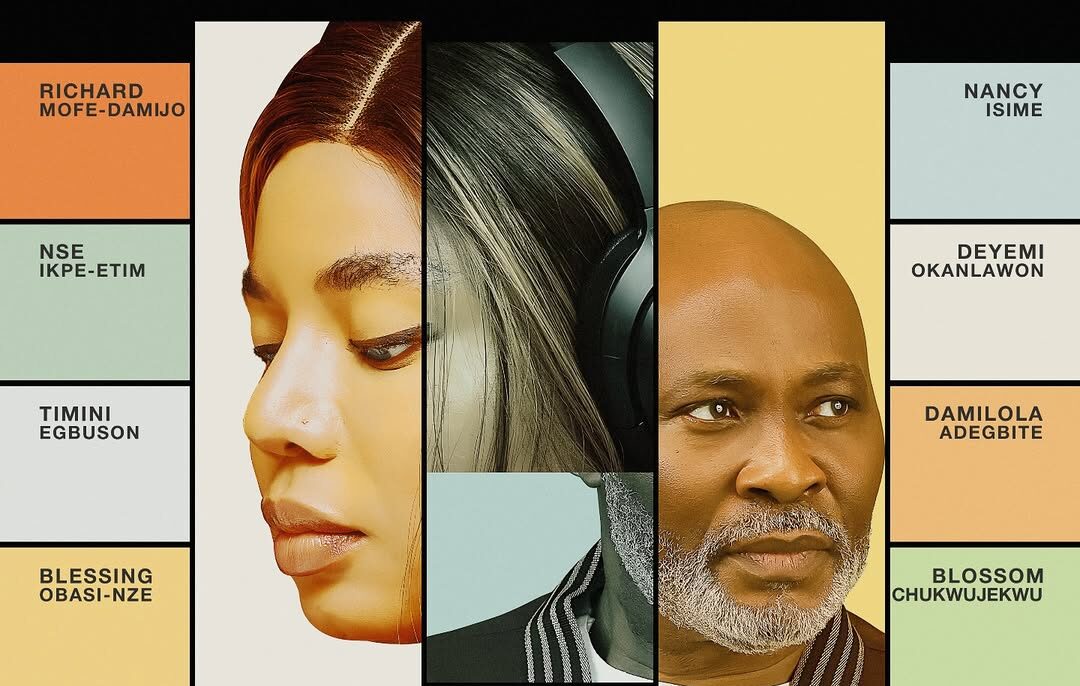What Radio Voice lacks in plot direction, it makes up for in heart, at least in its first half. And with performances that keep it grounded, it’s a decent enough watch for the patriotic cinemagoer this Easter holidays.
By Vivian Nneka Nwajiaku
There is a warmth that flows through Radio Voice (2025), the Richard Mofe-Damijo (aka “RMD”) production directed by Isioma Osaje (Japa! (2024); Finding Me (2025)), and co-written by Osaje and Ufuoma Metitiri (4:4:44 (2022); Home & Away (2024)).
It is possible that I felt that warmth more deeply because of my surrounding circumstances, having just come out of the loud and troubling Family Brouhaha (2025) in the exact same cinema hall (my frustrating experience with Family Brouhaha is documented in my review for Afrocritik).
Still, there is an undeniable calmness that comes with Radio Voice. Maybe it’s the sheer presence of calm voices like Mofe-Damijo and Damilola Adegbite, or the fact that this is a film about radio voices, people who have to be pleasant to listen to.
Or maybe it is the film’s humanist story, its compassionate portrayal of human experiences, and its near-persistent argument in favour of humanity’s capacity for kindness, handled with a restraint that is atypical of Nollywood, sometimes even feeling too restrained for its own good.
In Radio Voice, Mofe-Damijo plays a radio station owner and manager named Karo who is still reeling from the loss of his wife, Mayowa. Nse Ikpe-Etim takes on Mayowa (a role reminiscent of the one she played in Izu Ojukwu’s 4:4:44 (2022) as the sick wife of a character also played by Mofe-Damijo). Adegbite returns from a hiatus to play Blessing, the station’s sales manager, who looks out for Karo while he grieves and might be falling in love with him.

But the real star of Radio Voice is Nancy Isime’s Uche, a poor single mother who does the occasional voiceover for jingles that her friend Uduak (Blessing Jessica Obasi-Nze) connects her to, but also moonlights as a sex worker at night so she can send her daughter to a nice, expensive private school.
It is the daughter, Precious (Jasmine Olarotimi, just as brilliant as she was as a pre-teen in Kayode Kasum’s Oga Bolaji (2018), where she was credited as Jasmine Fakunle) who charms her way into the grieving station manager’s heart one fateful night, giving him new purpose and a reason to open up again.
Karo takes them under his wings, protects them from the daughter’s destructive absentee father (Timini Egbuson), and offers Uche a job as a radio host on the popular morning show that his wife once led. But Karo, himself, has been away from the affairs of the station for too long, and Uche gets caught up in office politics at the hands of an ambitious colleague, Andy (Deyemi Okanlawon), who not only wants her gone but also wants Karo’s job.

Obviously, what we have here is a solid cast. But that has never guaranteed solid performances in Nollywood, so it is a genuine pleasure to be able to say that the acting is Radio Voice’s strongest merit.
It’s not surprising that Isime is a natural as an on-air personality, since she attained fame as a TV personality before really making it in acting, but she is just as good in the non-radio parts, and her spirited portrayal of a determined but struggling young mother is a performance to behold, possibly a career best.
Mofe-Damijo’s Karo wears his grief like armour, even when Precious inspires that sparkle in his eyes. Adegbite is elegantly expressive as Blessing, her discomforts and desires captured with subtlety but always perceptible.
Ikpe-Etim has hacked the sick partner role, and Okanlawon is the controlled villain. Egbuson’s irresponsible son of rich parents hits the right spots this time. Even the child actor in this film is a delight to watch, with Olarotimi exuding confidence, talent and an incredible rapport with the older actors.
In fact, so much rolls off naturally in Radio Voice that it is almost easy to miss how much thought clearly went into seemingly little things like locations or how well-written the dialogue is—so far the best I have heard from Nollywood this year.
From its insistence on a level of maturity, even in the most violent and vitriolic of its scenes, to its refusal to descend into chaos and its avoidance of sexist messaging without shying away from the realities of gender, watching Radio Voice was such a soothing experience, so much so that its flaws are considerably easy to overlook. And there are quite a number of them.

Several aspects of Radio Voice could have been handled better. Karo’s insertion in Uche and Precious’ lives could have been less rushed. The romance arc would have benefited from some more fleshing out. Character motivations should have been more consistent. Most of the flashbacks are well-timed, but some could have been better interspersed and less repetitive.
Loose ends should not have been left untied, especially in the subplot involving Egbuson’s character and a loan shark (Blossom Chukwujekwu). And other than the dialogue, the sound design really should have been so much better for a film that is literally about radio.
Yet, it is easy to like this film, even if it starts slow before suddenly moving too fast in the end, while simultaneously losing steam. It definitely will not be panned as heavily as Japa!, Osaje’s debut, or Finding Me, her sophomore feature, which she co-directed with Funke Akindele.
What Radio Voice lacks in plot direction, it makes up for in heart, at least in its first half. And with performances that keep it grounded, it’s a decent enough watch for the patriotic cinemagoer this Easter holidays.
Rating: 3/5
(Radio Voice is showing in Nigerian cinemas.)
Vivian Nneka Nwajiaku is a writer, film critic, TV lover, and occasional storyteller writing from Lagos. She has a master’s degree in law but spends most of her time reading about and discussing films and TV shows. She’s particularly concerned about what art has to say about society’s relationship with women. Connect with her on Twitter @Nneka_Viv




